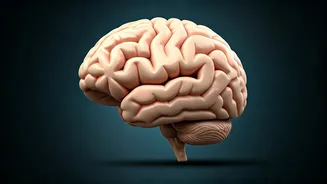Differentiating Headache Types
Headaches vary, with most not being a major concern. Tension headaches, for example, typically cause a dull ache, often described as a band tightening
around the head. They are frequently linked to stress, poor posture, or dehydration, and usually resolve with rest, hydration, and over-the-counter pain relief. On the other hand, migraine headaches often involve throbbing pain, usually on one side of the head, and may be accompanied by nausea, vomiting, and sensitivity to light and sound. Migraines can last for hours or even days and require specific treatments to manage the severe symptoms effectively. Cluster headaches are less common but are known for causing extreme pain, often concentrated around one eye, and occur in cycles, with periods of headaches followed by periods of remission. Recognizing these differences is the first step in assessing a headache's significance, but when symptoms become severe, frequent, or unusual, consulting a doctor is essential to rule out anything serious.
Concerning Headache Symptoms
Certain headache symptoms warrant immediate medical attention. A sudden, severe headache, often described as a 'thunderclap headache,' can be a sign of a serious condition like a subarachnoid hemorrhage, which is bleeding in the space around the brain. Headaches accompanied by fever, stiff neck, rash, confusion, seizures, double vision, weakness, numbness, or difficulty speaking are red flags that could indicate meningitis, encephalitis, or another critical neurological issue. Headaches that gradually worsen over time, or those that change in their pattern or intensity, should also be assessed by a healthcare professional. Any headache associated with head trauma, even a minor one, must be evaluated to rule out serious internal injuries. If you experience any of these symptoms, it’s crucial to seek medical care without delay, as early diagnosis and treatment can significantly improve outcomes.
Brain Tumour Warning Signals
Brain tumors often present with symptoms that can mimic common headaches, but with some key differences. Headaches caused by brain tumors are frequently persistent and worsen over time, often becoming more severe in the morning or when lying down. They may also be associated with nausea and vomiting, especially in the absence of a fever. Additional symptoms suggestive of a brain tumor include changes in vision, such as blurred vision, double vision, or loss of peripheral vision. Seizures are another significant sign, particularly if they are new or unexplained. Cognitive changes, such as difficulties with memory, concentration, or personality changes, can also indicate a tumor. Weakness or numbness in the limbs, speech difficulties, and problems with balance or coordination are further indicators that could point to a brain tumor. Recognizing these specific symptoms and seeking timely medical evaluation are critical for potential early detection and management of a brain tumor, increasing the chances of successful treatment and improving prognosis.
Seeking Medical Evaluation
If you experience any concerning headache symptoms, it’s imperative to consult a healthcare professional for a thorough evaluation. Your doctor will likely start by asking detailed questions about your symptoms, medical history, and any medications you’re taking. A neurological examination will assess your reflexes, coordination, vision, and cognitive function. Depending on the initial assessment, the doctor might recommend imaging tests like an MRI or CT scan of the brain to visualize its structures and detect any abnormalities. Additional tests, such as a lumbar puncture (spinal tap), may be performed to analyze the cerebrospinal fluid for signs of infection or other conditions. Early diagnosis is key. If a brain tumor is suspected or diagnosed, it’s crucial to collaborate with a multidisciplinary team of specialists, including neurosurgeons, neurologists, and oncologists, to develop a comprehensive treatment plan tailored to your specific condition.
Proactive Brain Health
Maintaining optimal brain health involves several proactive lifestyle choices. Prioritize getting enough sleep, as it allows the brain to repair and rejuvenate itself. The recommended amount for adults is generally 7–9 hours of quality sleep per night. Manage stress effectively through techniques such as meditation, yoga, or spending time in nature, as chronic stress can negatively impact brain health and contribute to headaches. Stay hydrated by drinking plenty of water throughout the day. A balanced diet rich in fruits, vegetables, and whole grains provides essential nutrients that support brain function. Engage in regular physical activity, which improves blood flow to the brain and can reduce the risk of various neurological conditions. Avoiding smoking and excessive alcohol consumption is also crucial, as these substances can damage brain cells. Regularly reviewing your headache patterns and symptoms with your doctor can help in early detection of any emerging issues, promoting brain health.




















